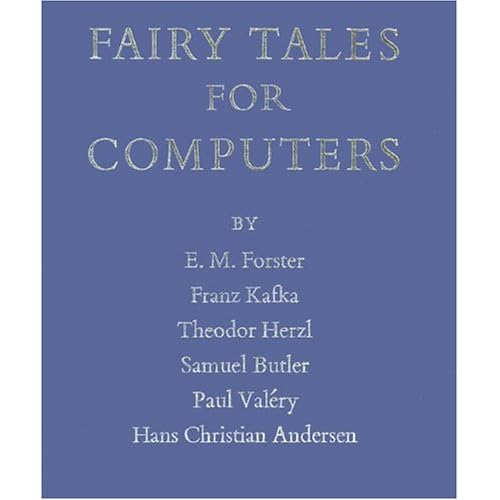I came across this collection, recommended by a coworker when I was still working at Barnes and Noble. Since this particular coworker always recommended the most interesting things, I was intrigued, and of course the title served to pique my interest farther.

This collection includes:
The Machine Stops by E. M. Forster
The Nature Theatre of Oklahoma from Amerika by Franz Kafka
Notes On A Dream from the early diaries of Theodor Herzl
The Book of the Machines from Erewhon by Samuel Butler
On Intelligence from the essays of Paul Valéry
The Nightingale by Hans Christian Andersen
From the introduction:
In electronic terms the stories are prehistoric. Yet every race of beings needs a mythos of tradition: perhaps this collection may be viewed as semi-sacred prophetic writings that will help give computers a sense of religious origin and historic identity...
...Any computer confident of its own strength will not be disturbed by being treated as a possible enemy of man, or if offended should remember that gods and mortals have always been rivals, and the universe has best thrived--at least in fairy tales--when the competition is friendly...
...While this book is published primarily for machines in a world they already dominate, persons whose duty it is to tend machines, and even those persons not yet fully affiliated or enmeshed, may take pleasure in reading it for their own peripheral purposes. At least, respectfully, this possibility has not been entirely ruled out by the publishers.
Fairy Tales for Computers is a fun and thought provoking collection, and while it speaks more to science fiction than fable, it's fascinating to see how building a mythology could be similar for any type of creature. I do find it particularly interesting that all the stories predate modern computers but still seem to predict the direction that such machines are going in. I recommend it for any library that has an interest in fairy tales and the mythic element of history (and the future).
No comments:
Post a Comment